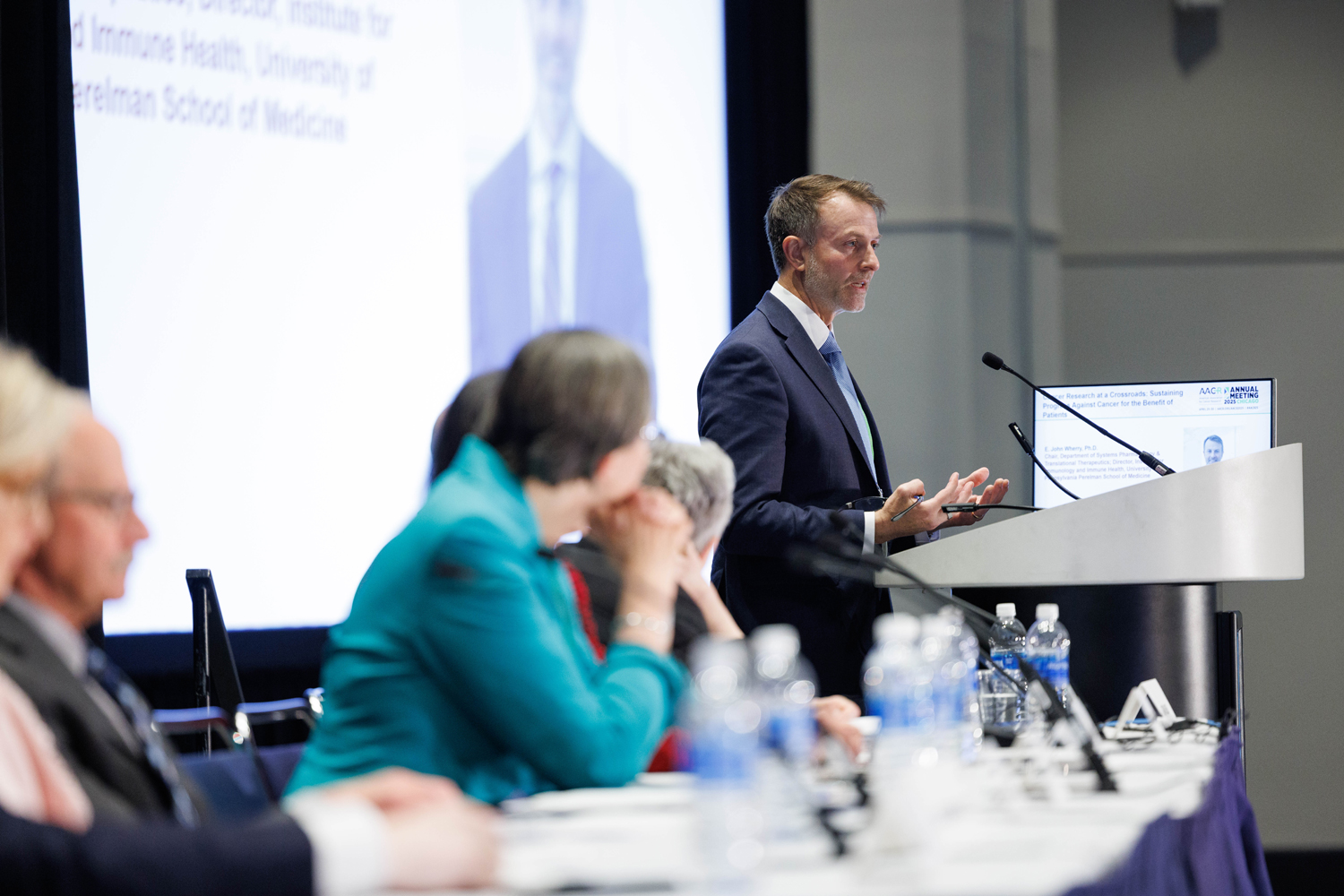ON A DAY when thousands of cancer researchers held up placards reading “Cancer Research Saves Lives” at the American Association for Cancer Research (AACR) Annual Meeting 2025 in Chicago, researchers, former directors of federal agencies and cancer survivors discussed the crisis in federal support for research. (The AACR publishes Cancer Today.)
Delays and halts in federal funds and staff layoffs at federal agencies put cancer research and future treatment breakthroughs at risk, said Patricia M. LoRusso, president of the AACR, at the session on April 27. LoRusso cited a recent AACR survey that found 70% of respondents had experienced delays in PhD or postdoctoral admissions and 55% knew of colleagues who are leaving the research field.
“Patients cannot wait” for potentially life-saving cancer breakthroughs delayed by interrupted trials, said LoRusso, a medical oncologist and chief of early-phase clinical trials at Yale Cancer Center in New Haven, Connecticut.
“When science is silenced, patients pay the price,” she said. “Behind every delay, every cancellation and every missed opportunity is someone whose life might depend on what we discover next.”
The panel session, titled “Cancer Research at a Crossroads: Sustaining Progress Against Cancer for the Benefit of Patients,” brought together the former directors of the National Institutes of Health (NIH) and the National Cancer Institute (NCI) as well as cancer researchers and cancer survivors.
Monica M. Bertagnolli, a surgical oncologist, cancer survivor and former NIH director, said “every bit” of research that led to treatments for her early-stage breast cancer was funded by the NIH or NCI.
“NIH exists to support the scientific community” for the benefit of patients, she said, noting that between 40% and 50% of NIH funding goes to basic research that otherwise wouldn’t be supported. She urged cancer researchers in the audience to “fight for your science, fight for what you do that benefits the American people” as a response to the recent federal cuts. Despite the current turmoil Bertagnolli said her experience working with elected officials in both major parties leads her to believe that they “really want to deliver what is best for the American people.”
Kimryn Rathmell, a medical oncologist and former director of the NCI, said scientists need to do a better job telling the story of their research and how it has benefited people, for example, through the development of new treatments for pediatric leukemia, melanoma and other cancers. And scientists need to talk to people outside their echo chamber. “We need to engage with very different audiences,” she said, citing a recent talk she gave to residents of a nursing home. “These people are very interested in cancer.”
Immunologist E. John Wherry, director of the director of the Institute for Immunology and Immune Health at the University of Pennsylvania in Philadelphia, focused on the economic benefits of federal support for research. “Federal spending on research is the single-best return on investment that we make as a society,” he said. “For every dollar of NIH funding that we spend, it generates about 2.4 to 2.5 dollars of return economic activity.”
Cody L. Wolf, a postdoctoral research fellow at the University of Virginia in Charlottesville, offered a perspective on the challenges facing researchers in the beginning stages of their careers. He likened being an early-career researcher to entering a corn maze with branching opportunities and unexpected twists and challenges. When funding is jeopardized, exits from the corn maze into the next stage of their careers are blocked off for young scientists and, for others, the entrance itself to the maze could be closed.
But, he added, “It really enlightens me that even in such a tumultuous time for us, there’s still so much hope” among his peers.
Two cancer survivors and patient advocates were also part of the panel. Larry Saltzman, a retired family physician and leukemia and lymphoma survivor for the past 15 years, said he wouldn’t be alive today were it not for new treatments that were the fruit of cancer research. “I, like many others, would not be surviving the dreaded big C” without treatment breakthroughs, he said.
Kristen Dahlgren, a former NBC correspondent and breast cancer survivor, called for better communication about science. Dahlgren is the founder and CEO of the Cancer Vaccine Coalition, which she said she started because she was unaware that vaccines to treat cancer were being developed. “I had no idea they even existed,” she said, adding, “Science has a communication problem.”
Cancer Today magazine is free to cancer patients, survivors and caregivers who live in the U.S. Subscribe here to receive four issues per year.





